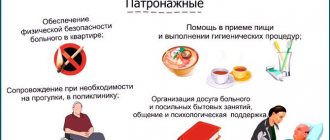The appearance of a mentally ill person in a family is associated with great difficulties. The state takes into account the complexity of the family’s circumstances and provides benefits to guardians of the incapacitated. In addition, such people are entitled to certain preferences from regional authorities. However, to obtain them, it is necessary to go through a lengthy procedure to establish the disability and related incapacity of the ward. You will have to contact not only doctors, but also the Arbitration Court.
Article 29 of the Civil Code states:
“A citizen who, due to a mental disorder, cannot understand the meaning of his actions or manage them, may be declared incompetent by the court in the manner established by civil procedural legislation. Guardianship is established over him."
Thus, it is necessary to start from the definition of incapacity.
Download for viewing and printing:
Civil Procedure Code of the Russian Federation dated November 14, 2002 N 138-FZ (as amended on December 19, 2016) (as amended and supplemented, entered into force on January 1, 2017)
Who can be the guardian of an incapacitated person?
In Russia, guardianship is often granted to close relatives. This is a natural phenomenon. However, not everyone knows what obligations they must fulfill when acquiring the status of a guardian, as well as what rights and additional opportunities they have.
Requirements for a guardian
The guardian must be:
- citizen of Russia,
- fully capable
- has reached the age of 18 years,
- no older than 60 (there is no such thing in the law, but guardianship authorities rely on this figure),
- not suffering from infectious diseases,
- having no criminal record or criminal prosecution,
- not suffering from alcohol or drug addiction,
- having good housing and sufficient income to provide for the family, taking into account the incapacitated person. The person under guardianship will be completely dependent.
Rights and responsibilities of a guardian
The rights and obligations of guardians are regulated at the legislative level by Federal Law No. 48. The guardian, on behalf of his ward, performs all legally significant actions, carries out transactions, represents interests in various organizations or court, and carries out visits of the ward to medical institutions to receive treatment or preventive examinations. All small household issues are also on it: buying food, cooking, buying clothes, hygiene items, help around the house, help with hygiene procedures, walking outside and much more.
If an incompetent citizen owns movable or immovable property, with the consent of the guardianship authorities, the guardian can use this property and derive profit from it, which by default should be directed to the needs of the incompetent citizen. In special cases, it is possible to obtain permission for the guardian to receive personal profit from the use of the ward’s property.
The guardian must live together with the ward who has not reached the age of 16 years. Either on the territory of the guardian or on the territory of the ward, depending on the living conditions. Upon reaching the age of 16, guardianship authorities may allow separation if this is in the interests of the ward. This rule applies more to disabled children who go to study in boarding schools in another city.
A guardian engaged in labor activities can count on:
- additional 14 days of vacation at your own expense,
- monthly 4 days off,
- possibility of rest on weekends or holidays,
- the opportunity not to travel on long business trips,
- other benefits as agreed with the employer.
Right to inheritance
A guardian has no right to inherit the property of an incapacitated citizen. The exception is:
- inheritance by law, for example, children-guardians inherit the apartment of their supervised parents;
- the real estate transaction was completed long before the person was declared incompetent.
The guardian has no right
Without the consent of the guardianship authorities, guardians should not independently use the property of the ward for personal gain, give or transfer to other persons for use, mortgage, divide and carry out other forms of alienation. The legislator did not provide for property relations between the parties. An exception is that you can donate property to the ward himself.
Responsibility
Guardianship authorities are obliged to monitor the living conditions of those under their care; therefore, they can go home for inspections without warning. In the first month after the appointment of a guardian, two mandatory checks are carried out; in the future, if necessary, specialists can also visit the house where the incapacitated person lives.
Important conditions are the cleanliness of the house, the health status of the ward, the availability of food, clothing, sleeping space and other needs in each specific case.
During the inspection, documents and checks for expenses incurred for the ward may be requested.
Annual report
By law, a guardian has powers that give him the right to enter into transactions with the property of the person under his guardianship. A citizen can do this only with the consent of the guardianship authorities. All financial actions are recorded in the cash expenditure report. It is the responsibility of all guardians to submit the report within the prescribed time frame. Violation of this condition may lead to deprivation of the right to further care for an incapacitated citizen. Article 39. Release and removal of guardians and trustees from the performance of their duties
To submit a report, you must fill out a standard form, which contains the following important information:
- FULL NAME. guardian and ward.
- Residential address, telephone number and year of birth of the reporting person.
- Indication of areas for spending state financial support (food, clothing, medicine, recreation, household services, etc.).
- Personal account number of the person under guardianship.
- The amount of money a disabled person has in their accounts.
- Residential address of the person under care.
- Information about guardianship (name of government agency, date and number of the act on the appointment of a guardian).
- Information about the property of the incapacitated person (real estate, land, vehicles, etc.).
- Information about changes in the composition of property.
- Information about income and expenses.
- Tax information.
Form for guardianship of an incapacitated person
Thus, a relative or a stranger who has expressed such an intention and collected all the necessary documents can become a guardian of a person. Federal benefits for caregivers require minimum payments. At the regional level, it is possible to provide additional financial and social guarantees.
How to obtain guardianship of a disabled person: step-by-step instructions
When identifying a citizen in need of guardianship, the POiP must find a guardian for him within 1 month. If the latter expresses a desire to become a trustee himself, he must proceed as follows:
- Collect a package of documents and submit to the guardianship authorities.
- Wait for the application to be reviewed. During the inspection, the commission clarifies the information from the submitted documentation. If guardianship is assigned to a disabled child, the living conditions of the applicant must be checked.
- Receive the commission's conclusion. It usually takes 1-2 weeks to consider a candidate, after which the OOiP makes a decision. If the result is positive, a guardianship agreement will be concluded.
Example No. 1: establishing guardianship over a disabled person
Gerasimova O.V. recognized as disabled group 2. She has no relatives, but she has a younger and able-bodied neighbor, N.K. Maksimova, with whom she has a good relationship. The latter periodically helps the woman, so Gerasimova O.V. she herself suggested that she take out guardianship in order to receive payments and benefits.
Maksimova N.K. agreed to become a guardian, for which she applied to the Office of Internal Affairs with an application. The documents were reviewed for no more than 10 days, and the government agency made a positive decision.
Documentation
According to the law, documents are provided simultaneously from the disabled person and the applicant for guardianship:
| Disabled person | Guardian |
| Passport | Passport |
| Certificate of disability | Autobiography |
| Certificate from the Pension Fund about pension payments | Characteristics from the place of employment |
| Extract from Rosreestr about real estate objects for which ownership is registered | Certificate of no criminal record |
| Conclusion of the OO&P commission on the survey of living conditions | |
| Medical certificate confirming the absence of serious illnesses that would prevent the establishment of guardianship: HIV, AIDS, tuberculosis, etc. |
If a disabled person is declared incompetent, an additional court decision that has entered into legal force recognizing him as such is provided.
Grounds for refusal to establish guardianship
Most often, guardianship authorities make positive decisions regarding the establishment of guardianship. An exception may be if there are grounds for which the conclusion of a guardianship agreement is impossible:
- non-compliance of the guardian’s housing with sanitary and technical standards.
- presence of a serious illness;
- lack of written consent of all adult family members for one of them to take custody of a disabled person, because this implies living together;
- provision of an incomplete package of documents.
Also, the reason for refusal may be the discovery that the applicant has a criminal record or other reasons that impede guardianship.
Who can be a guardian
A candidate for obtaining the rights of a guardian over a disabled person of group 1 or 2 is subject to certain requirements from the social service.
Documents for this form of support for people in need can only be submitted if:
- Age from 18 years.
- Having full legal capacity.
- No criminal record.
- The facts of deprivation of parental rights were not recorded in court.
- Absence of infectious and other socially significant diseases.
- Availability of a positive characteristic at the place of work.
An application for guardianship rights over a disabled person of group 1 or 2 is submitted to the local social service department.
In order for the application to be considered, the following documents must be provided:
- Application for guardianship.
- Certificate of non-receipt of unemployment benefits.
- A copy of your passport and work book.
- Certificate of no criminal record.
- Copies of the disabled person's document.
- Certificate of income.
If the request for guardianship is sent by a relative, then the social service must also provide a document confirming the relationship, for example, a birth certificate. The decision to grant the right to be a guardian to a person with disabilities is made by a collegial commission within 2 weeks.
Reference! Relatives of a disabled person are always given priority when the guardianship authorities consider several applications. It is believed that such people have already established friendly relations and a high level of trust.
What benefits are granted to guardians of group 1 disabled people: list
Benefits for guardians of disabled people
Many people are interested in what benefits are provided to guardians of group 1 disabled people? Thus, when registering guardianship, a citizen receives the right to use the following benefits:
- Free trips to the sanatorium for treatment. Provided once a year
- 50% discount on utility bills
- Reduction of tax payments relating to land and transport, and property tax is completely abolished
- If a mother is caring for a disabled child under 8 years old, then she is entitled to a shortened working week or part-time work
- 4 days off per month with the same average salary
- Free travel on public transport
Among other things, parents of disabled children are entitled to an additional payment if they cannot work and care for the child. The benefit amount in this situation is 60% of the minimum wage. The disabled person himself is also not left deprived and is awarded a pension. Depending on the type of disability, its amount will differ.
So, for people disabled since childhood, the payment is 11.4 thousand rubles, and for those who have acquired status, the payment will be slightly less - 9.5 thousand rubles.
Disabled people of group 1 are considered the most disabled of all and cannot always use money on their own. In this case, the responsibility rests with the guardian, but he must act in the interests of the patient.
Depending on the region, benefits may differ because the cost of living differs in them. Moreover, payments to close relatives are always an order of magnitude greater than to strangers.
If we talk about what benefits are available to guardians of group 1 disabled people, they will differ. They are expressed to a greater extent in labor concessions:
- The guardian is partially relieved of his work duties. So, he is entitled to a part-time working week or part-time work
- Every month the guardian is entitled to 4 days off with pay.
- On weekends and holidays, the guardian is allowed not to work. The employer does not have the right to even include an employee in the order without his consent
- Moreover, work beyond working hours and business trips, even short ones, are not allowed.
- Additional leave of 14 days is provided annually
- Early retirement. For example, if guardianship is carried out for 18 months, then the retirement age for a citizen is reduced by 1 year
So, despite the fact that a pensioner has to be cared for practically without any additional payments, the state still tries to provide assistance, at least in social terms.
Benefits and in-kind assistance
- Free supply of dairy products for baby food (up to 2 years) on doctor’s prescriptions
- Free provision of medicines according to doctors’ prescriptions (up to 3 years)
- 50% discount on payment for the maintenance of a ward in a preschool institution
- Free travel in city passenger transport for a guardian on the basis of a Muscovite Social Card
- Preferential travel for full-time students
- Free entry to museums, cultural and recreational parks, etc. institutions under the jurisdiction of the Moscow Government (up to 7 years)
- Free entry to the zoo, reduced prices for visiting museums, exhibitions, etc. institutions administered by the Moscow Government (children from 7 to 18 years old or until the end of full-time education)
- Free two meals a day (during the period of study in educational institutions)
- Free provision of textbooks (during the period of study in educational institutions)
- Providing discounted or free hot meals (for full-time students in state educational institutions of primary or secondary vocational education)
Who can be a guardian of a group 1 disabled person in Russia?
Only an adult citizen who has no problems with the law, is in good health, is not in a same-sex marriage, and does not suffer from alcoholism, substance abuse or drug addiction can become a guardian of a group 1 disabled person.
This must be a person with stable moral and ethical qualities.
A citizen who wants to become a guardian of a group 1 disabled person must understand what he is getting into. He must have a strong psyche and a normal, adequate perception of the situation.
He must understand that he will have to constantly help his ward, be with him day and night.
If the rights of the ward are violated, the guardian may face administrative, property, and in some cases even criminal liability.
Responsibilities of a Guardian
When caring for an incapacitated ward, the guardian is obliged to:
- Provide comprehensive assistance in everyday life: buy food, feed the sick, help with the toilet, help with training if necessary.
- Make decisions for him, represent his interests in court.
- Pay his utilities.
- Buy food, clothing, shoes, medicines for a disabled person or an elderly person recognized as incompetent.
- Clean the apartment where his ward lives.
- Receive benefits, pensions, alimony and other types of payments. Spend them exclusively on the person under your care or personally transfer the money into his hands.
- Take care of his property, use it carefully, and, if necessary and in agreement with the ward, sell the property.
- Establish friendly, warm contact with the ward.
- Protect your ward from aggressive actions of other people towards an incapacitated person.
- Regularly check on the person under your care if he or she is hospitalized.
- Monitor and monitor the state of his health, promptly seek help from specialists.
The procedure for registering guardianship over an incapacitated person
- A person must submit a written application to the guardianship and trusteeship authority of the region in which the incapacitated person lives.
- In addition to the application, the relevant authority must require documents such as: autobiography, income certificate, work record book, passport, medical certificate, document on no criminal record, written consent of relatives for the right to be a guardian, etc.
- After reviewing all the documents and their approval, a commission is appointed, which on the appointed day comes to the person who wants to become a guardian and conducts an examination of his living conditions. If his living conditions satisfy them, then they pronounce a verdict on appointing him as a guardian for the incapacitated person.
The relevant authorities should consider the issue of guardianship no more than 7 days.
Appointment of a guardian
After the judicial authority makes a decision on a person’s incapacity, it is sent to the OPP at the place of his registration.
Guided by Art. 35 clause 1 of the Civil Code, art. 11 clause 2 of the Law “On Guardianship”, specialists of this government agency are obliged to make a decision within a month on the appointment of a guardian or the placement of the patient in a specialized institution. Important: a citizen recognized as a guardian receives the right to act in the legal field on behalf of the incapacitated person. At the same time, his responsibilities include respecting the rights of the ward.
A person whose responsibilities include guardianship of an incapacitated person must, in some cases, seek permission to act from the OPP. Without one, he is prohibited from:
- manages the property of the ward;
- enter into transactions on his behalf;
- sell or otherwise dispose of real estate and other valuables;
- pledge them;
- allocate shares;
- accept as a gift or acquire for your own benefit;
- participate in transactions with relatives regarding the property of the ward.
Registration procedure
The process of applying for guardianship benefits for a group 2 disabled person is as follows:
- Collection of the necessary package of documents.
- Contacting the appropriate authority and submitting documents.
- Waiting for a decision to be made on this issue.
- Receiving payments.
Where to go
You can apply for benefits in several ways, namely:
- by personal appeal to the territorial body of social protection of the population at the place of residence;
- at the MFC at your place of residence;
- with the help of a trusted person.
If we talk about the MFC, then you can contact its nearest branch, which is located at your place of residence and submit the same documents as to the social protection authority.
The authorized person can be a close relative or simply an acquaintance who will have a notarized power of attorney. This document provides full right to submit documents and write an application instead of a guardian.
What documents are required
There is a basic list of documents, the submission of which must be mandatory.
In particular, we are talking about documents such as:
- original and copy of the guardian’s passport;
- the original passport of the authorized person (if this is done by a third party under a power of attorney), as well as the power of attorney itself;
- decision of social care and trusteeship authorities. It is provided to the guardian in the form of a so-called extract;
- a copy of the disabled person's certificate, which confirms that the ward has a certain disability group;
- application for benefits. This document is drawn up in the presence of an employee of the MFC or the department of social protection of the population;
- a copy of the cover page of the guardian's savings book, on which the bank details for crediting benefits are located;
- the original certificate, which confirms the fact that the guardian and the disabled person live together in the same living space (the document can be issued at the passport office).
In addition to this list, social protection may require other additional documents as necessary. For example: a certificate of presence or absence of official work, a certificate of salary, and so on.
Timeframe for making a decision
Today, the maximum period for making a decision is up to 30 calendar days. But at the same time, on average, it will take no more than 10 calendar days to make a decision, after which social protection gives its verdict - a decision has been made to accrue benefits or a refusal has been received.
Benefits for guardians of incapacitated disabled people
» Disabled people are a special category of citizens in need of state protection and support. They are unable to take care of themselves, so they are cared for by official guardians who have the right to receive benefits from the state for their work.
Contents of the material Incapacity is the inability of a person to be responsible for his actions, to take conscious actions, to adequately assess the surrounding reality and make decisions. Citizens with such problems are unable to perform their social functions in society and monitor the observance of their civil rights and freedoms. A citizen who is an adult is recognized as incompetent only on the basis of a decision of a judicial authority.
After the decision comes into force, guardianship is established over such a person.
The following categories of persons can submit an application containing a request to the court to recognize the person specified in the document as incompetent:
- Close relatives (brothers, sisters, parents). The fact of cohabitation does not matter.
- Family members.
- Representatives of guardianship authorities.
- Representatives of psychiatric institutions.
The application must contain information on the basis of which the judge can draw conclusions about the possibility of declaring the citizen incompetent. To determine this possibility, a forensic psychiatric examination is appointed. The examination is usually carried out on a voluntary basis.
But if the patient clearly evades the examination, a court hearing is scheduled. A prosecutor and a psychiatrist take part in it. At the meeting, a decision is made, according to which the citizen is sent for a medical examination.
Based on the results of the examination, an expert opinion is formed.
What benefits are available to guardians of incapacitated and mentally ill citizens in 2020-2020?
› The appearance of a mentally ill person in a family is associated with great difficulties.
Based on this conclusion, as well as other data provided by the participants in the process (testimony of witnesses, consultations of specialists, explanations of the applicant, material evidence), the court makes a decision. The guardian is appointed by the relevant government agency - the guardianship authority.
The state takes into account the complexity of the family’s circumstances and provides benefits to guardians of the incapacitated. In addition, such people are entitled to certain preferences from regional authorities. However, to obtain them, it is necessary to go through a lengthy procedure to establish the disability and related incapacity of the ward.
Guardianship is established over him.” Thus, it is necessary to start from the definition of incapacity. Download for viewing and printing: To establish the fact of a person’s incapacity, it is necessary to prove his inability to use civil rights, manifested by:
- inability to understand one’s actions and give an account of them;
- loss of ability to direct actions.
- in not understanding the meaning of what is happening around;
Attention: at the state level, guardianship issues are dealt with by the guardianship and trusteeship authorities (TTB). Adult citizens are deprived of legal capacity only by a court decision. But first, a full examination in a psychiatric clinic is necessary.
It is carried out:
- Forcibly, in case of a threat to the life and health of other persons.
- Voluntarily, when the patient consents to manipulation.
Attention: the examination is carried out by specialists using modern developments recognized at the international level. After receiving the doctors’ opinion, the next stage is ahead: applying to the judicial authorities. It is regulated by Art.
281 of the Civil Procedure Code (CCP). An application for recognition of incapacity can be submitted by:
- AKI
- together with the patient;
- relatives living: together with the patient;
- separately;
Who is guardianship assigned to?
The main legal act confirming the need to establish guardianship over persons declared incompetent is the Civil Code of the Russian Federation. In particular, Art. 29 says that a person who is unable to understand the consequences of his actions may be declared incompetent by the court.
Thus, when establishing incapacity in relation to a person, it is necessary to prove the fact of the citizen’s inability to use his rights. This manifests itself in the following:
- lack of understanding of what is happening around;
- inability to recognize one's own actions;
- loss of control over actions.
The issue of guardianship of citizens of the Russian Federation is dealt with by the OPP (authorized guardianship and trusteeship bodies).
Who is eligible for this government support?
In order to obtain guardianship over a person with disabilities who has been assigned disability group 1, it is necessary to go through a special procedure. Only after receiving the status of “guardian” can you count on receiving funds that are due under current legislation.
The following people have the right to obtain guardianship:
- Working age (able to independently care for a disabled person);
- From 16 to 60 years of age;
- Having no criminal record;
- Having no mental disorders.
Priority is given to close relatives.
Payments are essentially partial compensation to the caregiver for the loss of income while caring for the person. The guardian will not receive payments if he has another source of income. Also, a candidate for guardianship must meet moral requirements.
Registration of guardianship occurs by agreement with the guardianship and social protection authorities. If the disability is caused by mental illness, a guardian must be appointed.
To do this, you need to go through several steps:
- Collection of documents and relevant papers;
- Providing a certificate of disability of a person in need of guardianship;
- Submitting papers to social security authorities and the Pension Fund.
A medical institution - dispensary, where the disabled person is registered, may be appointed as a guardian of an incapacitated person. The corresponding decision is made within 15 days from the date of submission of the relevant papers.
If a person wishing to obtain guardianship does not meet the criteria, the documents submitted by him will be returned and a written refusal will follow.
How are benefits issued?
The assignment of preferences to disabled people of group 1 occurs on an application basis. To do this, the guardian must contact the relevant authority with an application. The authorized agencies in this case are:
- social protection authority;
- Federal Tax Service (for taxes paid on vehicles and property);
- judicial authority;
- legal departments.
Providing benefits for utility bills can be achieved through the MFC or bodies operating in the field of social protection. In addition, a representative of a citizen with mental disabilities has the right to apply for them to companies providing utility services.
When visiting designated structures, the guardian must have with him a passport, a certificate confirming disability of group 1 (ITU), as well as a decision made by the court to establish guardianship.
What benefits are provided for guardianship of an incapacitated person?
If a person caring for a mentally ill citizen is unable to work, then the state will pay him benefits. It is presented in the form of a pension supplement and amounts to 1,200 rubles. To receive compensation, you must provide the required package of documents to the pension fund:
- statement of the person acting as a guardian;
- ID card and work book (guardian and ward);
- verdict of the PLO on granting guardianship to an incapacitated citizen;
- documents confirming that the guardian does not receive any payments.
You can find out more details from the pension fund employees. If a person receives alimony, any benefits, a scholarship, or has other official income, then he is not entitled to compensation.
Guardianship of a mentally ill person has its advantages, which are represented by state-guaranteed benefits:
- There is no need to pay for travel on public transport if the guardian travels with the ward.
- An incapacitated citizen has the right to receive a referral for free sanatorium treatment.
- Only half of the required amount of tax assessment for the purchase of a passenger car is paid.
- The notary charges the guardian only 50% of the full cost for his services.
- Utility bills are only half paid.
- A person fulfilling a guardianship duty may receive free legal advice.
- When filing a claim with the court for damages in the amount of up to 1 million rubles, you will not have to pay the state fee.
A clear advantage for able-bodied people is the length of service accrued for guardianship of an incapacitated citizen. For 1 year of performing duties, you can receive 1.8 pension points. In the future, the guardian will be entitled to pension payments.
Often, caring for a mentally ill person does not allow a citizen to devote time to work. In this case, he is entitled to an additional payment to the ward’s pension for guardianship.
It should be completed at the Pension Fund (PF) branch. To do this, you must provide the following documents:
- Guardian personal statement.
- A certificate stating that this person does not receive pension payments.
- Certificate from the employment center about the absence of registration as a job seeker and corresponding payments.
- Copies of both ID cards.
- A copy of the OPP decision on the appointment of guardianship.
- Work records of both (if available).
Attention: the benefit amount is 1,200 rubles. In addition, the guardian has the right to dispose of all income of the incapacitated person.
These include:
In addition, the guardian has the right to dispose of all income of the incapacitated person. These include:
- Disability pension (social or labor, depending on the circumstances).
- Monthly payment amount:
- package of social services:
- charges for using transport;
- reimbursement of expenses for medicines;
- Spa treatment.
Important: the guardian will have to independently take care of the assignment of payments, if the incapacitated person has not previously done so.
Other preferences
There are a number of benefits that apply to the guardian and the incapacitated citizen himself. Namely:
- In public transport, both people do not have to pay if they travel together.
- When calculating tax on vehicles (up to 150 hp), a 50% discount is given.
- When sending a statement of claim to a judicial authority with damage up to one million rubles. State duty is not withheld.
- Notary services for a guardian cost half the price.
- Benefits for utility bills are 50%.
- If necessary, this person may receive free legal services.
- Treatment, including sanatorium-resort treatment, is provided to the ward free of charge.
For reference: the benefits listed above are available to all disabled people of the first group, which include incapacitated persons. Important: for each year of caring for a disabled person of group 1, a citizen is awarded 1.8 pension points. This will allow you to apply for pension benefits in the future.
Legal grounds
Guardianship of an adult and incapacitated citizen is a free service.
But the law provides for cases when the assistant is paid small monetary payments. These compensations were approved by state decree No. 343 of June 4, 2007. If the patient’s parent does not officially work, then, according to presidential decree No. 551 of March 17, 1994, he can count on a payment of 60% of the minimum wage. Monthly benefits for persons with disabilities are provided for by Presidential Decree No. 175 of February 26, 2013. Download for viewing and printing: Decree of the Government of the Russian Federation dated 04.06.2007 N 343, ed. from 06/02/2016
Decree of the President of the Russian Federation dated March 17, 1994 No. 551
Registration procedure
Establishing guardianship over a disabled person of the first group - attaching a legal representative to a disabled (incompetent) person, who must act in the interests of the ward, protect and realize his rights. The authorized body has the right to assign an assistant forcibly to mentally ill people if they are not aware of their actions.
Guardianship over a disabled person of group 1 is established due to the patient having physical or psychological problems that have caused restrictions in one or another area of life. The conditions for assigning the first category are the presence of persistent deviations that prevent the applicant from working, coping with everyday issues, moving, and communicating without outside help.
| Legislative regulation | ||
| № | Project name, date of adoption | Questions about what regulates |
| Federal Law on social protection, dated November 24, 1995 | Specifies concessions that are guaranteed to disabled people in the Russian Federation | |
| Federal Law on Guardianship, dated April 24, 2008 | Establishes the concept of guardianship, trusteeship and the conditions for their provision | |
| 51 | Civil Code, dated November 30, 1994 | Art. 32 defines the circle of persons over whom care is established |
| Art. 35 talks about who can be a guardian | ||
| 223 | Family Code, dated December 29, 1995 | Establishes the possibility of establishing the care of children by third parties |
Design features
The registration procedure differs depending on the reason for establishing guardianship. There are several conditions for its appointment:
- physical disabilities - requires registration of disability;
- psychological problems - requires establishing the fact of incapacity.
Disability registration:
- Getting directions.
- Collection of information.
- Passing the ITU.
- Obtaining a conclusion.
- Contacting the guardianship authorities to establish guardianship.
Incapacity is established in the following order:
- Recognition of incapacity. The initiative can come from close people of the patient who can confirm their relationship with him. The institution where the disabled person was treated can also file a claim.
- Appointment of an independent examination. If the patient has deviations, an appropriate conclusion is made.
- Recognition by the court of the fact of incapacity based on an expert opinion.
- Approval of the candidacy of a trustee by the guardianship authorities upon presentation of a judicial opinion here.
Personality requirements
Guardianship of a disabled person can only be established by a legally capable citizen. It is assumed that the person must be an adult, able to work and not limited in special rights. Restrictions that prevent you from obtaining a special right:
- age under 18 years;
- incapacity by court order;
- restriction of the applicant's rights as a parent;
- alcoholism, drug addiction, other types of addiction;
- removal of a person from adoption or guardianship due to their fault;
- unexpunged, outstanding criminal record;
- health problems.
The applicant must provide all possible support to a disabled person of the first group, realize his rights, therefore the candidate must be a healthy, capable candidate in the working phase. Pensioners, disabled people, people with poor health do not have the right to establish guardianship, since they themselves need it.
Actions of a potential guardian
- Filling out the form.
- Collection of related documents.
- Conducting an inspection of living conditions by guardianship authorities.
- Issue of a commission by an authorized body.
- Issuance of a certificate.
Where to contact
Registration is carried out by the guardianship authorities. The procedure is initiated by an application and supported by relevant documents. The application is reviewed collectively. The decision is made no later than two weeks after the filing of the relevant petition.
Required documents for the ward:
Documents from the candidate for guardianship:
The procedure for establishing the incapacity of citizens
Adults are deprived of legal capacity only when a court makes an appropriate decision. Before this, the person must undergo examination at a psychiatric medical institution. It can be organized in two cases:
- Voluntarily with the consent of the citizen to undergo the procedure.
- Forcibly when there is a threat to other persons.
The examination is carried out by doctors using modern technologies that meet the requirements of the whole world.
After the conclusion is received, it is necessary to correctly formulate a statement of claim and send it to the authority. The procedure is regulated by Art. 281 Code of Civil Procedure of the Russian Federation . The document can be generated:
- relatives, regardless of their residence with the incapacitated person;
- local AKIs;
- a medical organization that has identified signs that the patient is not aware of his actions;
- an inpatient facility in which a person with mental disabilities is located.
Important! The application is submitted to the district court at the patient’s place of residence. It is allowed to send the paper to the authority located at the location of the medical institution.
What does it mean to be a caregiver for a disabled person?
The category of disabled person of the first group includes persons with serious physical limitations:
- blind, deaf;
- recognized as mentally ill;
- unable to move independently, walk, move limbs, head, paralyzed;
- having abnormalities or dysfunction of the digestive, excretory, respiratory systems;
- deterioration of metabolism, blood circulation, internal secretory functions.
The guardian is called upon to compensate for the social deficiency. This is a legal concept, a certain status, implying certain rights and obligations. All these points are supported by law and outlined in the Civil Code of the Russian Federation.
Responsibilities of a guardian for a disabled person of group 1:
- Maintaining the normal living conditions of the ward, performing daily procedures and actions that he is incapable of in this state (cooking, feeding, providing food, going to the store for medicines, washing, assistance with going to the toilet, hygienic and other care).
- Maintaining the health of a disabled person and assistance in treatment (accompaniment during examinations, rehabilitation in sanatoriums, resorts).
- Caring for the home and sanitary facilities in the ward’s home, maintaining cleanliness and order.
- Protection of the ward in government and other authorities, as well as in any disputes before third parties.
Such a responsible, but at the same time honorable, activity gives the guardian certain rights:
- Possibility of receiving regular cash benefits from the federal and regional budgets for round-the-clock care for a group 1 disabled person.
- The right to live together with the ward in the same living space for supervision and assistance.
- Free travel on public transport for an accompanying disabled person or when traveling to the place of health of the ward.
- A bona fide guardian lays claim to the real estate and other property of the disabled person for whom he is caring. After death, with the consent of the latter, the property will legally pass to the guardian.
It is prohibited to make any transactions on his behalf without the consent of the ward. This may be considered by the authorities as fraud and extortion. Social authorities are trying to protect this separate category of the population, so such operations require additional confirmation from the guardianship authorities and other authorities.
Common mistakes
Error: The remuneration of a guardian of a disabled person is estimated by him at 15% of the disabled person’s income.
Comment: Payments to guardians of disabled people cannot exceed 5% of the total income of the person under guardianship.
Error: A citizen who has been assigned a disabled group is going to become the guardian of a disabled person of group 1.
Comment: The conditions for obtaining the status of a guardian of a disabled person are good health and legal capacity of the future guardian.
Guardianship for a disabled person
Being a caregiver for a disabled person is very hard work. After all, such a person requires constant care and attention. Who is entitled to guardianship due to disability is determined by the judge at the hearing.
A decision must be made to establish guardianship for the following categories of patients:
- Bedridden patients are disabled people of group 1. Taking custody of such a person is not an obligation, but a right. This means that the person himself must show a desire to become the guardian of an incapacitated person, even if it is a relative or close person. It is impossible to force a citizen to become a guardian; this is contrary to the legislation of the Russian Federation.
- Disabled people of group 2 (people who have paralysis, mental disorders, skull defects, irreversible processes of visual impairment, stump of a leg or arm, etc.). In this case, the guardian helps the disabled person and fulfills his requests. At the same time, he is prohibited from using the ward’s property or using his funds independently. For guardianship, a person receives financial resources from the state (not from the disabled person).
Group 3 disabled people are often capable people. They can take care of themselves, so they do not need care. A group 3 disabled person receives benefits and assistance.
Decision made by the authority
A decision is made only after reviewing all aspects of the case. If there is a need for additional examinations, they are appointed by the authority. In addition to medical information, the court considers the testimony of witnesses and other documents indicating the inadequacy of a person.
The incapacitated person must be present in the hall at the meetings. If it is impossible to fulfill this requirement, the authority will go to the institution where the patient is kept.
Registration of guardianship over an incapacitated person in 2020
- Documents confirming the identity and marital status of the guardian.
- Certificate of income (for example, from your place of work).
- If the ward will live together with the guardian, written permission from adult family members will be required for this action.
- A medical certificate that a guardian is able to care for an incapacitated person.
- Choosing the type of guardianship - full or partial (patronage). You can learn about the intricacies of these types of guardianship in consultation with a lawyer. A specialist in this problem will also be able to answer any questions about guardianship, for example, whether the guardian can sell the apartment of an incapacitated citizen, etc.
- When choosing full guardianship, it is necessary to prove the incapacity of the elderly person, which is done after applying to the judicial authorities and passing medical commissions. When choosing partial guardianship, the ward must himself contact the guardianship authorities or the Pension Fund with a request to appoint a guardian.
- Collection of documents. The package of documents is determined by the body involved in the registration of guardianship.
- Obtaining a guardian's certificate.
Responsibility
Article 26 of the Law “On Guardianship” provides for the guardian's liability, including criminal liability, for improper performance of duties. They control the guardianship activities of a citizen of the PPP. They have the right:
- file a claim for termination of guardianship;
- contact the prosecutor's office and other authorities with a statement protecting the rights of the incapacitated person.
Attention: responsibility comes for:
- use of rights for personal gain;
- leaving the ward without help;
- improper performance of assumed duties.
Termination of guardianship
The duty to care for a mentally ill disabled person ceases in the following cases:
- the guardian’s refusal to do so on his own initiative;
- if the patient was placed in an inpatient social institution;
- if a conflict situation arises between the parties, making it impossible to fulfill their obligations;
- after the return of legal capacity by a court decision.
Rights and responsibilities of a guardian over an incapacitated elderly person
- Relatives. In most cases, this happens when a child is left without parents. Also, guardianship is required for older people who often have health problems. For example, children can obtain guardianship over an incapacitated parent in order to then resolve for him all legal issues that arise.
- Any citizen who meets the requirements:
- he must be of age;
- capable;
- have no financial problems;
- have no mental problems.
Caring for the client. Monitoring the health status of the elderly citizen and ensuring timely treatment. Purchase of food, medicines, hygiene products. Protection of property rights of an incapacitated person. If necessary, contact specialized medical institutions for help for the ward. Use of benefits that are entitled to the ward. For example, treatment in a sanatorium, purchase of medicines. Payment of tax deductions from the income of the ward. Acceptance of property of an incapacitated person according to the inventory from third parties. Providing a report to the trustee bodies on the expenditure of funds for the maintenance of the ward for a certain period of time.
You might be interested
Conditions for teachers to receive preferential mortgages in 2021- How to refuse child support
- How to obtain a certificate of no criminal record
- Compensation and assistance in case of house fire
Additional Information
Guardianship of a mentally ill person comes with great responsibility. Unfortunately, government support measures currently cannot be called satisfactory. The same cannot be said about the strict supervision of guardians.
- A person officially performing guardianship functions does not have the right to inherit the property of the ward. After his death, the property will go to his legal heirs or the state.
- Transactions with the property of an incapacitated person may be challenged in court at the request of other interested parties.









